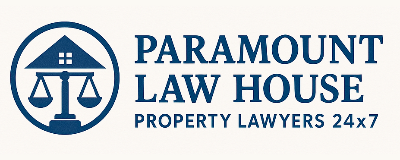Landlord Legal Support Services: Protect Your Rights
Landlord Legal Support Services: Paramount Law House: Property Lawyers 24×7 deeply understands the complexities landlords face in managing their properties. Indeed, property…
Landlord Legal Support Services: Paramount Law House: Property Lawyers 24×7 deeply understands the complexities landlords face in managing their properties. Indeed, property ownership comes with significant responsibilities. It also involves potential legal challenges. Consequently, protecting your rights as a landlord is not merely advisable. It is absolutely essential. Therefore, our firm offers comprehensive legal support services. We empower landlords to navigate the intricate landscape of property law. We ensure their investments are secure. This proactive legal approach is vital for preventing disputes and safeguarding assets.
Landlord Legal Support Services: Protect Your Rights: Paramount Law House
The Legal Framework for Landlords in India
India’s rental landscape is governed by a patchwork of laws. These include central acts and various state-specific legislations. Firstly, the Transfer of Property Act, 1882, lays down fundamental principles of property transfer. This includes leases and tenancies. Secondly, the Indian Contract Act, 1872, governs the contractual aspects of rental agreements. These include the terms and conditions agreed upon by parties. Thirdly, state-specific Rent Control Acts are particularly significant. For instance, in Tamil Nadu, the Tamil Nadu Regulation of Rights and Landlords and Tenants Act, 2017 (TNRRLT Act), replaced the old Rent Control Act. This new act aims to balance the rights of both landlords and tenants. It mandates written tenancy agreements. It also specifies procedures for eviction and rent revision. Therefore, understanding these diverse legal provisions is the first step for any landlord. It ensures compliance and minimizes legal exposure.
Drafting Robust Tenancy Agreements: Your First Line of Defense
A well-drafted tenancy agreement is the single most important legal document for a landlord. It serves as your first line of defense. Firstly, it clearly defines the terms and conditions of tenancy. This includes the rent amount, security deposit, and payment schedule. Secondly, it outlines the duration of the tenancy. It also specifies renewal clauses. Thirdly, it details the obligations of both the landlord and tenant. This covers maintenance responsibilities and usage restrictions. Furthermore, it should specify the notice period for termination. It must also include clauses for dispute resolution. For example, the TNRRLT Act mandates a written agreement. It also requires its registration with the Rent Authority. Failure to register can lead to legal complications. Consequently, investing in a legally sound agreement prevents misunderstandings. It provides a clear legal basis for enforcement. Therefore, never rely on oral agreements. Always seek professional legal assistance for drafting this crucial document.
Rent Collection and Arrears Management: Legal Recourse
Timely rent collection is fundamental for property owners. However, tenants sometimes default on payments. In such situations, landlords need clear legal recourse. Firstly, the tenancy agreement should explicitly state the due date for rent. It should also outline penalties for late payment. Secondly, upon default, landlords should issue a formal demand notice to the tenant. This notice serves as a written record of the arrears. It formally requests payment. Thirdly, if the tenant continues to default, the landlord can initiate legal proceedings. Under the TNRRLT Act, a landlord can approach the Rent Authority for recovery of rent arrears. They can also seek eviction based on non-payment. Therefore, maintaining meticulous records of rent payments is vital. These records serve as crucial evidence in any legal action. Proactive legal action safeguards your financial interests.
Eviction Procedures: Navigating the Legal Labyrinth
Evicting a tenant can be a legally complex and emotionally charged process. It requires strict adherence to legal procedures. Any deviation can render the eviction invalid. Firstly, a landlord cannot simply evict a tenant without due process. Self-help evictions are illegal. They can expose the landlord to legal liability. Secondly, the grounds for eviction must be legitimate. These are typically defined in the tenancy agreement and relevant Rent Control Acts. Common grounds include non-payment of rent, unlawful sub-letting, misusing the property, or requiring the property for personal occupation. Thirdly, the landlord must serve a valid eviction notice to the tenant. This notice must comply with legal requirements for format and notice period.
In Tamil Nadu, if the tenant does not vacate after the notice period, the landlord must file an application with the Rent Authority (or the Rent Court/Tribunal, depending on the stage). The Rent Authority then adjudicates the matter. It passes an eviction order if grounds are established. Furthermore, if the tenant refuses to comply with the Rent Authority’s order, further steps can involve execution proceedings. Therefore, navigating this labyrinth requires expert legal guidance. Paramount Law House ensures landlords follow every legal step meticulously. We minimize risks and expedite the process.
Property Maintenance and Repairs: Defining Responsibilities
Clear demarcation of responsibilities for property maintenance and repairs prevents frequent disputes. The tenancy agreement should precisely outline these duties. Generally, landlords are responsible for structural repairs. They also handle major upkeep. This includes plumbing, electrical wiring, and the overall integrity of the building. Tenants, conversely, are typically responsible for minor repairs and day-to-day maintenance. This covers routine cleaning and minor wear and tear.
However, disputes often arise regarding what constitutes a “major” or “minor” repair. The TNRRLT Act provides some clarity on this. It specifies that landlords generally undertake structural repairs. It also states tenants are responsible for ordinary repairs. If either party fails to meet their obligations, the aggrieved party can issue a formal notice. If non-compliance persists, they can approach the Rent Authority for resolution. Consequently, a detailed clause in the agreement saves both parties from future disagreements. It provides a legal basis for enforcing maintenance obligations.
Security Deposit Management: Compliance and Refunds
The handling of the security deposit is a frequent source of contention. The tenancy agreement must clearly state the deposit amount. It must also specify the conditions for its refund. Many state Rent Control Acts, including the TNRRLT Act, place restrictions on the maximum security deposit amount (e.g., typically limited to three months’ rent for residential premises).
At the end of the tenancy, the landlord can deduct legitimate expenses from the security deposit. These include arrears of rent, damages beyond normal wear and tear, or unpaid utility bills. However, the landlord must provide a detailed statement of deductions to the tenant. Any balance must be refunded promptly. Failure to refund the security deposit or to provide a proper justification for deductions can lead to legal action by the tenant. The TNRRLT Act empowers the Rent Authority to order refunds with interest. Therefore, transparent and legally compliant management of security deposits is crucial. It prevents future claims.
Dispute Resolution and Litigation Support
Despite best efforts, disputes can escalate. When negotiations fail, legal intervention becomes necessary. Paramount Law House offers robust dispute resolution and litigation support.
- Mediation and Conciliation: We explore ADR (Alternative Dispute Resolution) methods first. These can resolve disputes amicably. They save time and costs.
- Representation before Rent Authority/Courts: If ADR fails, we represent landlords before the relevant Rent Authority, Rent Court, or Civil Courts. We prepare compelling arguments. We present irrefutable evidence.
- Execution of Orders: Once an order is passed, we assist landlords in executing it. This ensures compliance, whether it’s for rent recovery or eviction.
- Appellate Proceedings: If an adverse order is passed, we guide clients through the appellate process. This includes filing appeals before higher judicial bodies.
Our seasoned property lawyers navigate every stage of the legal process. They protect your interests vigorously.
Frequently Asked Questions
The landlord-tenant relationship in India is governed by the Transfer of Property Act, 1882, the Indian Contract Act, 1872, and most importantly, various state-specific Rent Control Acts. For example, in Tamil Nadu, the Tamil Nadu Regulation of Rights and Landlords and Tenants Act, 2017 (TNRRLT Act), is crucial, mandating written agreements and specifying procedures for eviction and rent.
A well-drafted tenancy agreement is the landlord’s primary legal defense. It clearly defines terms like rent, security deposit, duration, and responsibilities, preventing misunderstandings. In many states, like Tamil Nadu under the TNRRLT Act, registration with the Rent Authority is mandatory. This makes the agreement legally enforceable and provides clear evidence in case of disputes.
If a tenant defaults on rent, the landlord should first issue a formal demand notice for arrears. If payment is not received, the landlord can initiate legal proceedings. Under acts like the TNRRLT Act, an application can be filed with the Rent Authority for recovery of rent and/or eviction based on non-payment, using meticulous payment records as evidence.
No, a landlord cannot simply evict a tenant without following due legal process. Self-help evictions are illegal and can lead to legal liability for the landlord. Eviction requires legitimate grounds, as defined by the tenancy agreement and relevant Rent Control Acts, followed by serving a valid eviction notice and, if necessary, filing an application with the Rent Authority or relevant court.
Paramount Law House provides comprehensive dispute resolution services. This includes exploring amicable Alternative Dispute Resolution (ADR) methods like mediation. If necessary, they offer robust litigation support, representing landlords before the Rent Authority, Rent Courts, Civil Courts, and in appellate proceedings, ensuring strict adherence to legal procedures and protecting the landlord’s rights.
Conclusion
Property ownership in India, particularly as a landlord, comes with unique legal challenges. Proactive legal planning and timely intervention are crucial for protecting your rights and investments. From drafting watertight tenancy agreements to expertly handling eviction proceedings, every step demands specialized legal knowledge. Paramount Law House: Property Lawyers 24×7 provides unparalleled legal support. We empower landlords with comprehensive solutions. We minimize risks. Ensure compliance. We provide swift and effective resolution to disputes. Partner with us. Secure your property. Focus on your investments. Let us handle the legal complexities. We are your trusted legal shield in the dynamic world of property law.
Read More
- Factory Monitoring Services: Legal Compliance Assurance
- Document Legal Verification: Ensure Authenticity and Validity
- Building Monitoring Services: Protect Your Property Investment
- DTCP Land Approval Services: Ensure Compliance and Approval
- Family Settlement Agreement Drafting: Legal Expertise
- Ministry of Law and Justice, Government of India:






